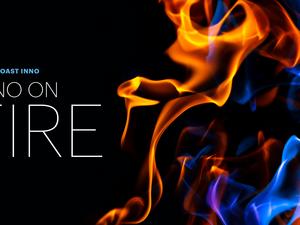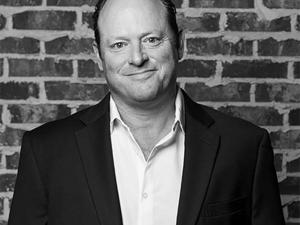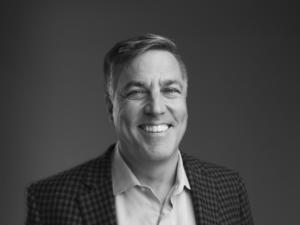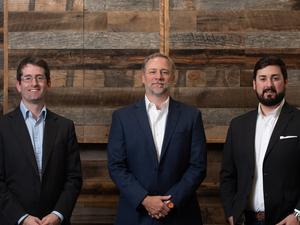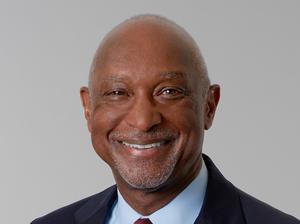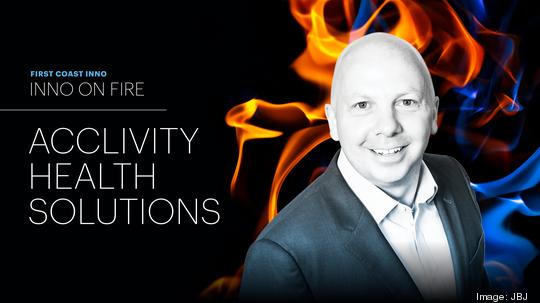
The First Coast is chock full of companies and nonprofits developing new products, growing their teams and supporting their communities.
To provide a window into that growth, we’ve singled out six outstanding innovators to honor with the 2023 Fire Awards, presented by First Coast Inno and the Jacksonville Business Journal. The honorees include startups and more established firms, and vary in industry and geography across the First Coast. Read more about each of the Inno on Fire Class of 2023 Honorees below:
Company Name: Acclivity Health Solutions
Industry: Health care
CEO: Jeremy Powell
Year Founded: 2017
Brief description of what the company does: Acclivity Health Solutions is a health care technology company with a mission to improve access to appropriate health care for patients with advanced illnesses. Its platform is designed to securely connect all members of a care community — physician practices, ACOs, hospice and palliative care organizations, payers, and caregivers — and facilitate effective care collaboration.
2022 Funding: $13 million in Series B
As you reflect on 2022's successes and growth, what was the prime contributing factor?
So the prime contributing factor is that Medicare is the largest payer in the United States, it continues to evolve models that incentivize care delivery that Acclivity has supported and innovated around. So Medicare is paying for the kinds of care redesign equipment Acclivity creates for health care.
Because Medicare traditionally cares for patients 65 and older, macro market forces like Baby Boomers aging into Medicare, at a clip of about 10,000 per day, means that our market is big and is growing fast.
Now that VC funding and investments have begun to slow, what is your strategy for seeking outside capital?
We've had some good timing when it comes to raising capital for this, money for this business. You know, we started in a pretty good window when it comes to capital being pretty fluid and available. We raised our last significant round last year, so markets weren't as tight. We've got a lot of dry powder. And so we think we think we've done the right things to weather this sort of tighter capital market season we're going to see for 2023 and in 2024.
Taking a step back to the company’s founding, are you where you expected to be by now? If more or less, how so?
I think we would go back and look at some of the models and projections. We're probably a little off pace from that. But I think that has more to do with a 100-year pandemic like Covid, impacting all of the globe as well as health care specifically, which is our vertical.
I'm proud of us being able to not only weather that, but thrive. We doubled our subscription recurring revenue during 2021 and then doubled it again in 2022. And that's right in the prime of the sort of Covid-era impacts. So if there wasn't Covid, we would probably have been closer to the original models we all sketched out pre-Covid.
Where does the company go from here? What is next for your company in the short to near-term?
So health care lags a little bit behind like fintech or retail when it comes to the technology advancements. So we like to make investments to try to catch health care up. And so machine learning and artificial intelligence are two places where we've been making investments for the six years we've been in business. And we'll continue to stress those investments because parts of what you get out of that is true innovation.
We expect those to pay dividends throughout 2023 and beyond. We also have looked at partnerships that are compelling when it comes to achieving even more scale. So we're a pure play technology company.
What is your outlook for your industry and the role you play in it going into the new year?
Hospitals especially are really going to struggle to redefine themselves. Covid showed them they can't deliver that level of care, which is intense and long. What they're really built for is a joint replacement that's in and out two days to three days, right? Because that's where the business sort of can carry that really high cost of the number of facility costs and fixed cost of all their care delivery locations. And you'll see them start divesting of things that are not germane to that very specific mission of being the best acute care center in the market, and again, we'll be there to sort of help patients who still need those services and just not be under the umbrella of the acute in the market.
